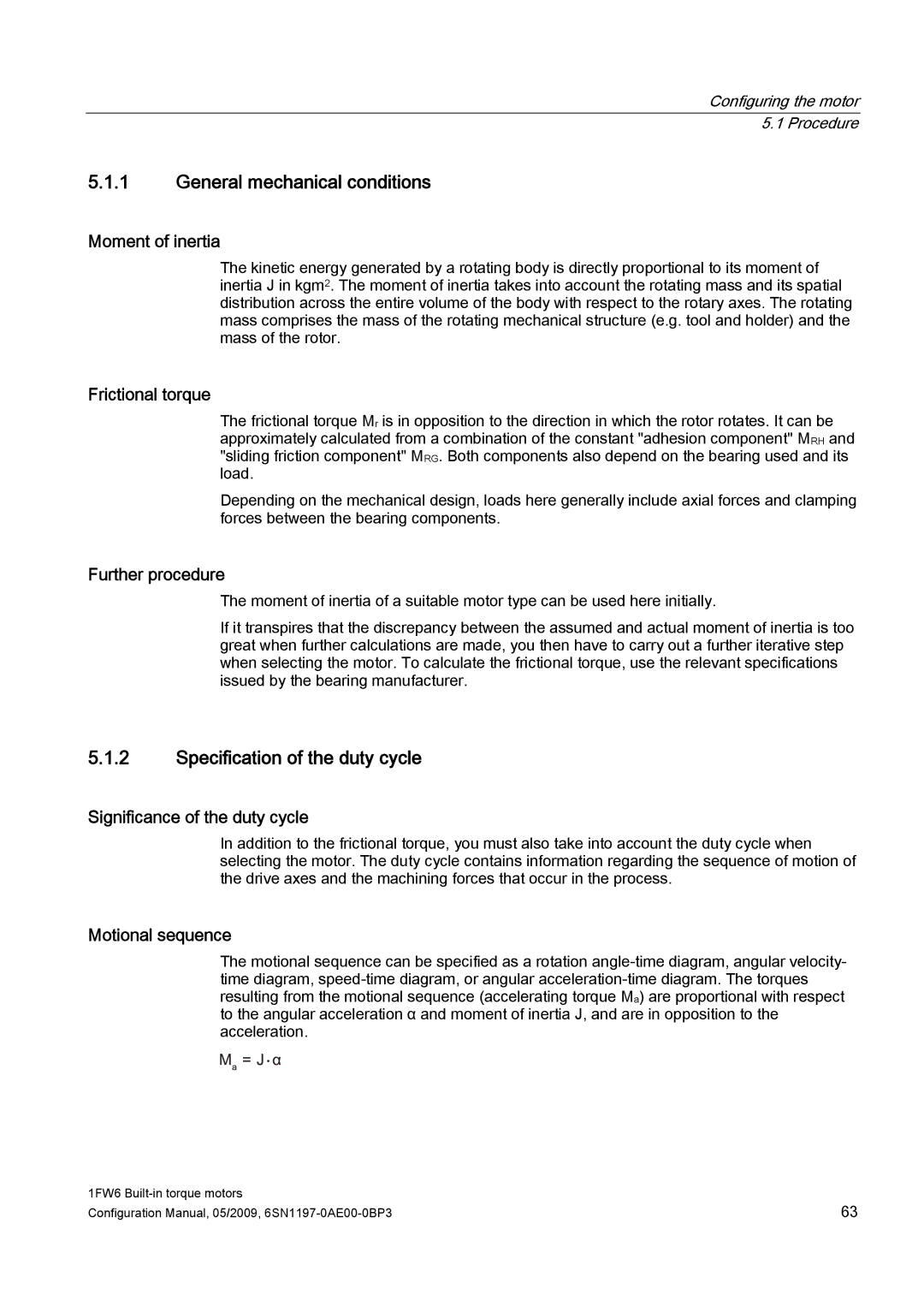
Configuring the motor 5.1 Procedure
5.1.1General mechanical conditions
Moment of inertia
The kinetic energy generated by a rotating body is directly proportional to its moment of inertia J in kgm2. The moment of inertia takes into account the rotating mass and its spatial distribution across the entire volume of the body with respect to the rotary axes. The rotating mass comprises the mass of the rotating mechanical structure (e.g. tool and holder) and the mass of the rotor.
Frictional torque
The frictional torque Mr is in opposition to the direction in which the rotor rotates. It can be approximately calculated from a combination of the constant "adhesion component" MRH and "sliding friction component" MRG. Both components also depend on the bearing used and its load.
Depending on the mechanical design, loads here generally include axial forces and clamping forces between the bearing components.
Further procedure
The moment of inertia of a suitable motor type can be used here initially.
If it transpires that the discrepancy between the assumed and actual moment of inertia is too great when further calculations are made, you then have to carry out a further iterative step when selecting the motor. To calculate the frictional torque, use the relevant specifications issued by the bearing manufacturer.
5.1.2Specification of the duty cycle
Significance of the duty cycle
In addition to the frictional torque, you must also take into account the duty cycle when selecting the motor. The duty cycle contains information regarding the sequence of motion of the drive axes and the machining forces that occur in the process.
Motional sequence
The motional sequence can be specified as a rotation
1FW6 | 63 |
Configuration Manual, 05/2009, |
